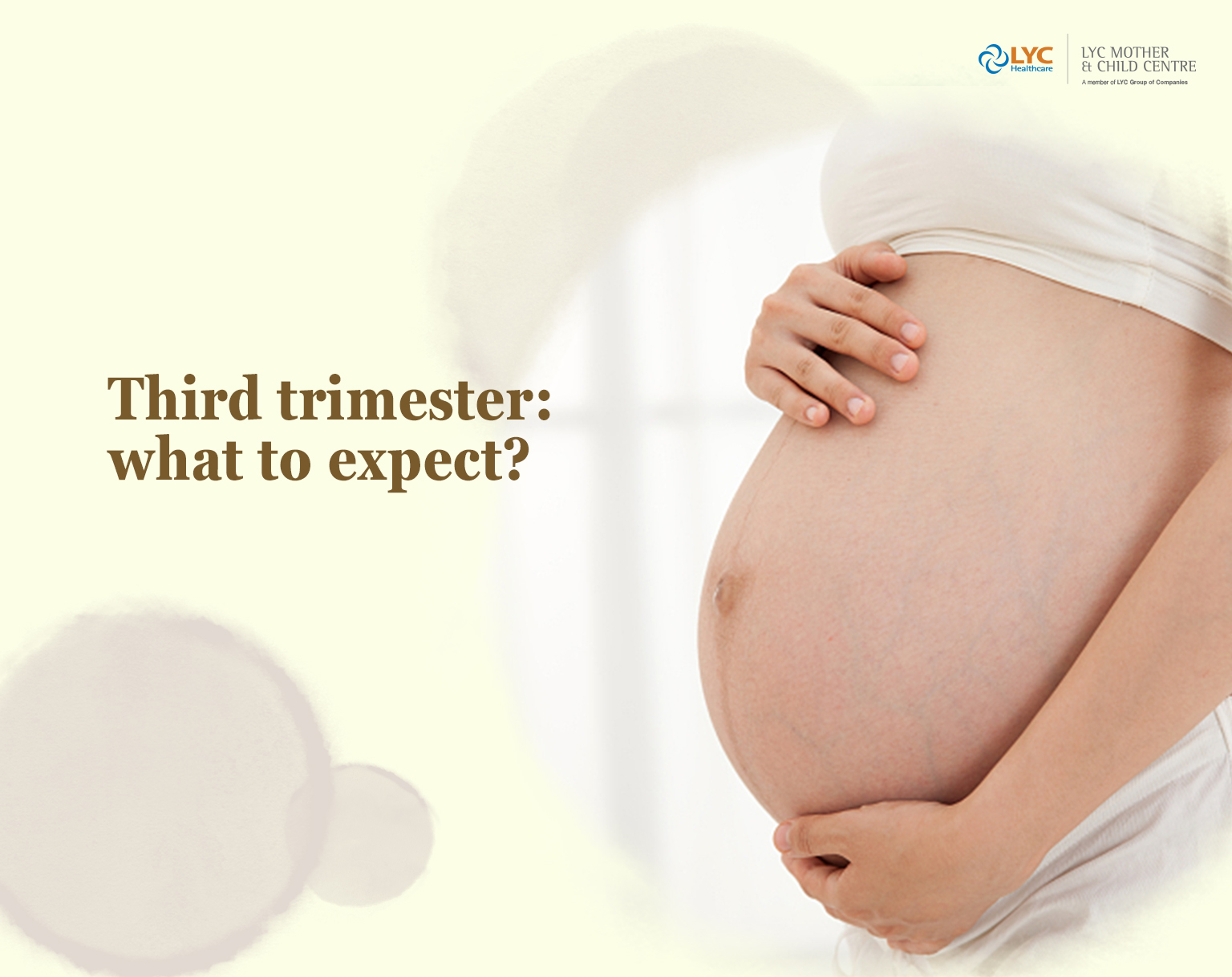Third trimester: what to expect

In the third trimester, you will feel more uncomfortable as the due date approaches. The weight and size of the fetus continue to grow, filling up your abdominal cavity, making it difficult for you to breathe deeply or to sleep at night, and you may even experience pseudo-contractions (Braxton-Hicks), which will increase your discomfort.
As your pregnancy progresses to the final stage, your baby's movements will also become more obvious. This feeling is exciting, but it also brings many discomforts. Here are the physical changes and symptoms that you may experience in the third trimester:
- Your baby emits body heat, causing you to feel hot due to the increased internal temperature.
- Frequent urination due to increased pressure on the bladder.
- There is less blood returning to the heart, which can lead to lower blood pressure.
- Shortness of breath.
- Swelling (edema) may occur in the ankles, hands, and face.
- Hair may start to grow on the arms, legs, and face, and the hair may also feel coarser.
- Leg cramps may occur more frequently.
- Irregular Braxton-Hicks contractions or false labour pains begin to occur in preparation for labour.
- Stretch marks can appear on the abdomen, breasts, thighs, and buttocks.
- Colostrum may begin to flow from the nipples.
- Dark spots on the skin of the face may become more noticeable.
- Constipation, heartburn, and indigestion may continue.
- Difficult passage of stools, prolonged sitting or standing may accelerate the development of hemorrhoids
- Increased whitish vaginal discharge (leucorrhoea/leukorrhea).
- Backaches may persist and worsen.
- Varicose veins in the legs may persist and worsen.
- As your baby grows in size, you will be prone to experiencing insomnia.
Although uterine rupture can have serious consequences, it is very rare. Uterine rupture can be prevented or successfully treated when both mother and doctor stay alert during pregnancy.
Third Trimester: fetal development
During the third trimester, your baby continues to grow in size and weight. The lungs are still developing at this stage and your baby is moving to a head down position. Fetal development in the third trimester includes:
- Your baby can see and hear.
- The brain continues to develop.
- The kidneys and lungs continue to mature.
- By week 36, the head may gradually move into the pelvic area.
- The skull remains soft, making it easier to pass through the birth canal.
- The fetus can suck its thumb and has the ability to cry.
- By 38 to 40 weeks, the soft lanugo hair on the body has almost completely disappeared, and the lungs have fully matured.
- Your baby is covered with vernix, a creamy, protective skin coating.
